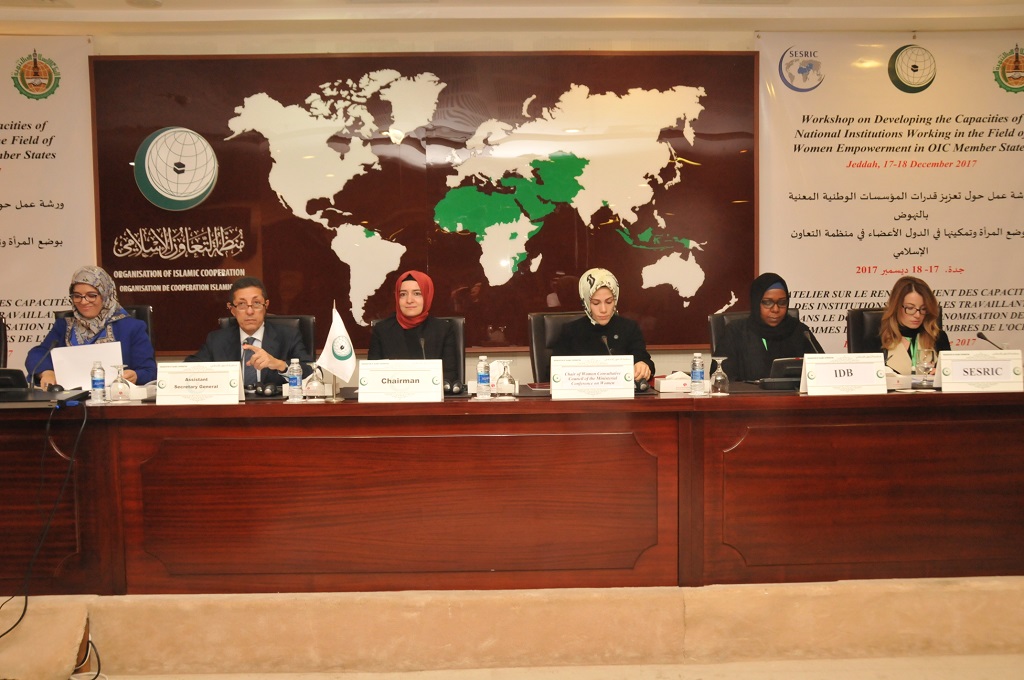
Date: 17/12/2017

The OIC workshop on enhancing the capacity of national institutions concerned with promoting women status and empowerment in OIC Member States kicked off at the OIC General Secretariat headquarters in Jeddah. It is held on 17 and 18 December 2017.
Amb. Hisham Yousef, Assistant Secretary General for Humanitarian, Cultural and Social Affairs, delivered the speech of the OIC Secretary General, Dr. Yousef bin Ahmed Al-Othaimeen. He noted that the First Ministerial Conference on the Role of Women in Development held in Turkey in November 2006 requested the preparation of an action plan for the advancement of women that the Second Ministerial Conference in Cairo adopted.
He added that the Fifth Conference decided to implement the action plan, review it and link it to the OIC program of action 2025 and sustainable development goals, pointing out that it was agreed to hold a meeting to discuss the obstacles facing the implementation of this plan.
Amb. Hisham indicated that as part of activating the partnership between the OIC General Secretariat and international organizations, the Secretary General signed in September a memorandum of understanding with the United Nations Women's Organization on the sidelines of the 72nd Session of the United Nations General Assembly. It aims to open cooperation between the two sides to empower women in Member States and implement the outcomes of the Beijing Conference and the OIC Plan of Action for the Advancement of Women. (OPAAW).
He concluded by expressing the hope that this meeting would contribute to assessing the progress made in the status of women and implementing the action plan and to reach a mechanism to provide information on its implementation in Member States.
H.E. Fatima Betül, Minister of Family and Social Policies of Turkey, Chair of the current Ministerial Conference on Women, said that Member States would not remain silent about the ethnic cleansing of the Rohingya Muslims, where most of the victims are women and children. She noted that refugees, especially women and children represent a priority in terms of providing assistance to them under the programs under review.